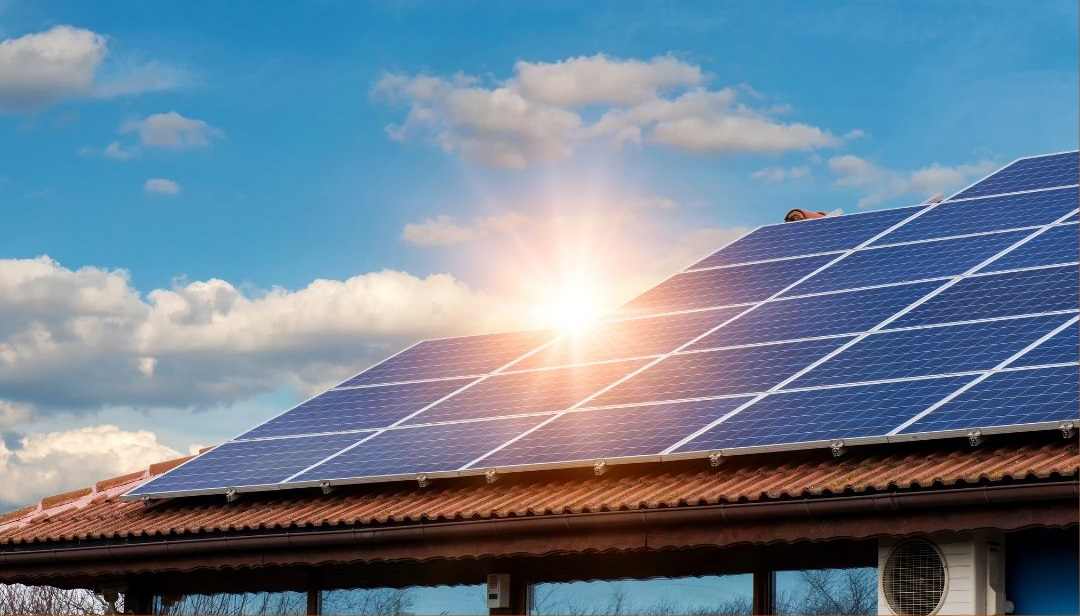Were you aware that the solar industry has grown a whopping 33% in the last decade? And it’s not surprising. With all the benefits of going solar, it’s no wonder it’s becoming a top investment. And if you’re reading this post, you’re probably aware of just how great going solar is. But now that you’ve chosen to go solar and adopt an eco-friendly lifestyle, how do you choose the best solar panels for your house?
The solar market is competitive (and expensive), and it’s overwhelming to pick one. But in this article, you’ll discover what factors to consider before making a final decision, so keep reading. Understanding the Basics of Solar Panels
The idea remains the same regardless of your home’s solar panels. Solar panels are installed on your rooftop, receive energy from the sun, and feed it into your home’s electrical grid.
If you have a net metering system, the electricity produced by the panels will feed back into the grid and reduce your monthly electricity bill. Suppose your home has solar panels without net metering. In that case, the electricity produced by the panels will go into your home’s main electrical system, offsetting any electricity you use from the grid.
Factors to Consider When Choosing Solar Panels
There are a few important factors to contemplate when choosing the best solar panels for your home, and your home’s location is one of them. Solar panels need exposure to the sun, so it’s important to consider your latitude and how much sun exposure your home gets. Higher-latitude homes, like those in the Northeast, Southwest, or across the country, need more panels to produce the same energy as lower-latitude homes in the Southeast and Southwest.
The size of your home is also a crucial factor. The number of panels you need directly connects to the amount of electricity your home uses. However, it’s important to consider the sunlight your home receives. A smaller home that receives plenty of suns might not need as many panels as a larger home that receives less sun.
What to Look for in a Panel
The quality of solar panels can vary greatly between manufacturers. You want to choose a high-quality panel that will last decades. With so many different attributes to consider, it can be overwhelming to pick the right panel, especially if you’re a first-time solar shopper.
Solar panels come in several types of sizes and have varying lifespans. Larger panels usually have a longer lifespan and produce more electricity, but they also come with a higher price tag. It’s important to decide what’s best for your home, but remember that buying smaller panels can help offset the cost.
When it comes to solar panels, higher efficiency is always better. The amount of energy a panel produces is measured in watts, and there are many different sizes and brands of solar panels on the market. Look for panels with higher wattage. A high-efficiency panel that produces more electricity is a wiser choice in the long run than a low-efficiency model.
Types of Residential Solar Panels
Nowadays, you’ll find a wide variety of solar panels on the market, and the type you choose for your home will be based on several factors, such as the panel type. Three main panel types are crystalline silicon (c-Si), thin film, and cadmium telluride (CdTe).
C-Si panels are the most common type but are also the most expensive and produce less energy. Thin film, CdTe, and hybrid panels are less expensive and produce more energy than crystalline silicon panels. Another important factor is the installation type. Rooftop, ground-mount, and rooftop hybrid panels have pros and cons. Roof panels are usually your best bet if your home is in a sunny area.
Ground-mount panels are a good option if your home isn’t in a very sunny place, like the Southeast. Rooftop hybrid panels offer the advantages of both rooftop and ground-mount panels.
How to Find the Best Solar Panels for Your Home
Once you’ve considered the factors above, it’s time to shop for the best solar panels for your home. When comparing panels, one of the things to look out for is reputation. Look for a reputable manufacturer with a good reputation and reviews from other homeowners that have used their panels. It will help you feel confident in your selection and help you avoid some of the scams in this industry.
Also, as a smart homeowner, you’ll want to look for a warranty. A good warranty will protect your panels in case they break or need to be replaced. Search for a warranty that lasts a minimum of ten years and offers a low-cost repair or replacement.
Which is Better? Buying or leasing?
These two options are very different ways to go solar. They offer different benefits and downsides, but it’s important to remember that both are long-term investments. When deciding on the best solar panels for your home, you must consider how you plan to pay for them. It may take several years to recover the cost if you buy your solar panels.
However, if you decide to lease your panels, there may be an up-front cost, but you won’t have to worry about paying off the panels later. If you decide to lease, make sure it’s a long-term lease, so you don’t have to worry about the panels coming due while they’re still producing electricity.
Time To Buy Your Solar Panels
Now that you understand the proper basics of finding the best solar panels, it’s safe to say that you’re ready to buy your very own set! Just be sure to do all the needed research before committing to anything. If you’d like some more advice on similar topics, be sure to keep exploring our website!

















